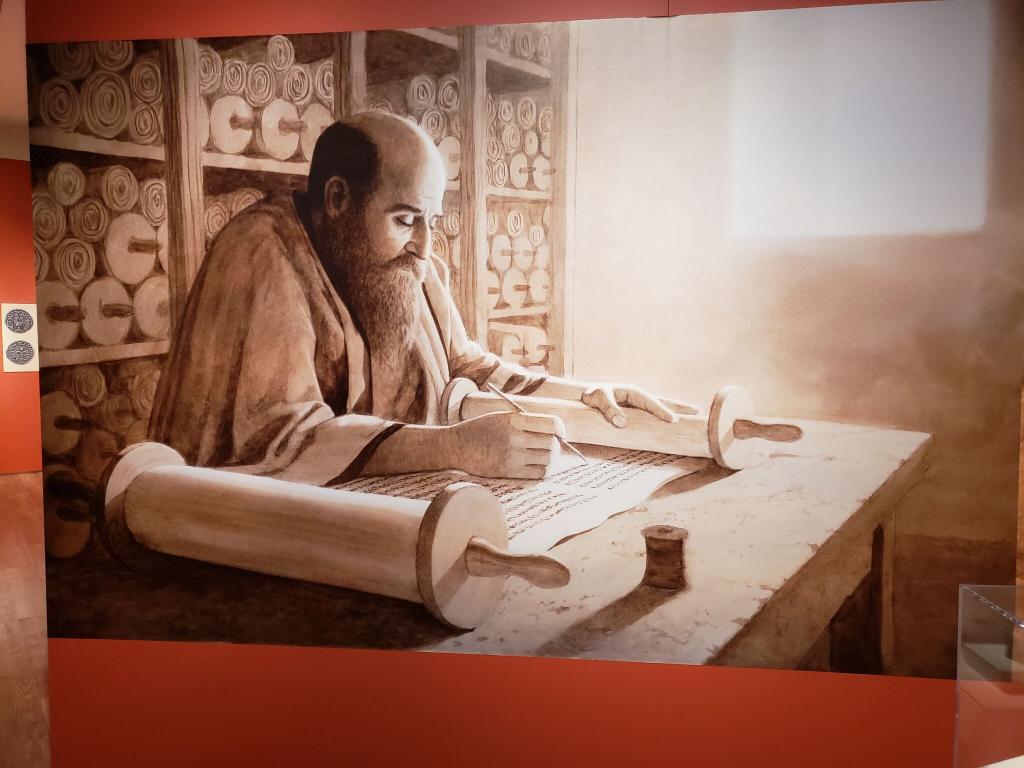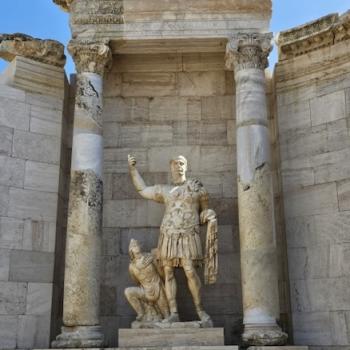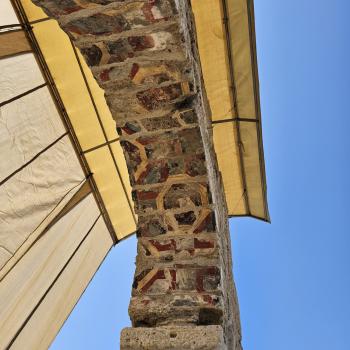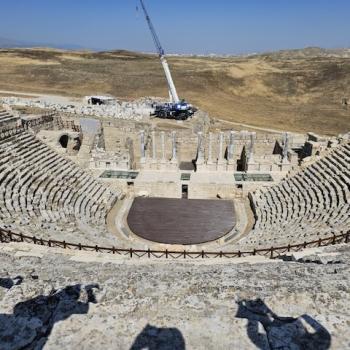Most regular readers of the Gospels are familiar with the Parable about the Messianic Banquet in Luke 14, which goes as follows—
15 When one of those at the table with him heard this, he said to Jesus, “Blessed is the one who will eat at the feast in the kingdom of God.”
16 Jesus replied: “A certain man was preparing a great banquet and invited many guests. 17 At the time of the banquet he sent his servant to tell those who had been invited, ‘Come, for everything is now ready.’
18 “But they all alike began to make excuses. The first said, ‘I have just bought a field, and I must go and see it. Please excuse me.’
19 “Another said, ‘I have just bought five yoke of oxen, and I’m on my way to try them out. Please excuse me.’
20 “Still another said, ‘I just got married, so I can’t come.’
21 “The servant came back and reported this to his master. Then the owner of the house became angry and ordered his servant, ‘Go out quickly into the streets and alleys of the town and bring in the poor, the crippled, the blind and the lame.’
22 “‘Sir,’ the servant said, ‘what you ordered has been done, but there is still room.’
23 “Then the master told his servant, ‘Go out to the roads and country lanes and compel them to come in, so that my house will be full. 24 I tell you, not one of those who were invited will get a taste of my banquet.’”
What you may not be aware of is several factors in regard to protocol that make all the difference in the story. First there is the matter of why the servants went out at a particular point and called the people to come to the banquet. You might think it’s just because the food is hot and ready at that juncture, which is partly correct. But there is another factor as well— namely how the ancients told time. Dinner time could be anywhere from before sundown until well into the evening, and if it was the latter, how would people even know what time it was? People told time in antiquity by a variety of means: 1) sundials (which were of no use in the dark); 2) water clocks, which were generally set up to let you know more broadly the month and day; and 3) hourglasses with sand in them, but again this was more like a timer you use to make sure you don’t burn the roast. It was generally not a way at all to tell exactly what hour of the day it was; 4) there were watches of the night which were associated with cock crows, especially about 6 a.m. or a little earlier when dawn was about to happen. The upshot of all this lack of precision about hours, especially in the evening or nighttime is that hosts would send their servants out to tell people the banquet was not happening.
But you need to know that there had been prior invitations, RSVPs sent out to these very same guests AND THEY HAD NOT TURNED THEM DOWN. So what we are talking about in the parable is the ‘reminder’ to come to a dinner one has already accepted an invitation to. And all three responses are meant to be seen as rude (see the recent commentary on Luke by A.J. Levine and myself with Cambridge U. Press). So as the parable goes, the host gets angry and says go out and gather up the least, the last, and the lost and bring them to the dinner– the poor, the lame, etc.
Now in its original setting Jesus is surely talking about the invitation he offered to the pious and religious elites of his time to come and join his celebration of the coming kingdom, though he also saw this as a foreshadowing of the final messianic banquet which he speaks of elsewhere. And there are larger implications to the parable as well, especially in the setting in which Luke lived and wrote. He is saying that even those who have been initially invited and have accepted God’s invitation into the Kingdom, may later decide not to come— in other words, commit not just rudeness, but outrageous apostasy. And the not originally invited can end up in God’s final eschatological kingdom instead! It is a shocking parable, but it tells us something about Jesus’ view of election or being among God’s chosen ones, namely that it doesn’t guarantee one’s final salvation at all, one’s participation in God’s kingdom when it comes fully on earth. An initial yes, must be followed by a continual and final yes in order to make it in the door of the messianic banquet.













